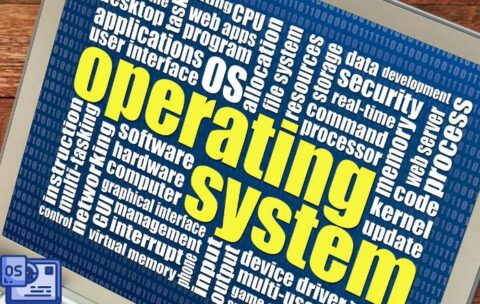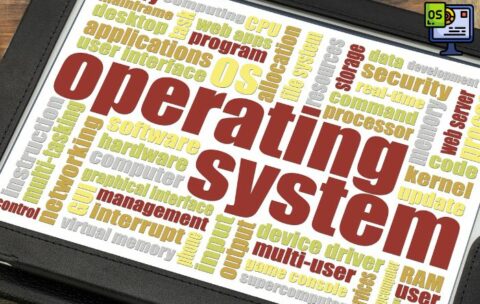Most popular
Foundations of Operating Systems
18 Lessons
Intermediate
What you'll learn
Operating System Basics: Gain a solid grasp of the fundamental concepts and principles that underlie modern operating systems.
Process Management: Understand how operating systems manage and schedule processes for efficient execution, including different scheduling algorithms.
Memory Management: Learn about memory allocation, virtual memory, and how operating systems manage memory resources effectively.
File System Organization: Explore the structures and mechanisms used by operating systems to manage files and data storage.
I/O Systems: Discover how input/output systems and device drivers facilitate communication between hardware and software components.
Advanced Operating System Concepts
19 Lessons
Intermediate
What you'll learn
Distributed Systems: Understand the principles behind designing, implementing, and managing distributed operating systems that enable seamless communication and resource sharing across networked devices.
Concurrency and Parallelism: Explore advanced techniques for managing multiple tasks concurrently and harnessing parallel processing to improve system performance and responsiveness.
Virtualization and Cloud Computing: Dive into the complexities of virtualizing hardware resources and explore cloud computing infrastructures, including provisioning, orchestration, and scalability of resources.
Advanced Memory Management: Learn about advanced memory management strategies, including memory hierarchies, Non-Uniform Memory Access (NUMA) architectures, and techniques for optimizing memory usage.
Advanced File Systems: Analyze advanced file system designs, such as journaling,
Operating Systems in Practice
18 Lessons
Intermediate
What you'll learn
Hands-On Management: Acquire practical skills to install, configure, and customise different operating systems based on specific needs.
System Administration: Understand user management, software installation, updates, and monitoring to effectively maintain systems.
Troubleshooting: Learn to identify and resolve common issues using diagnostic tools and debugging techniques.
Performance Optimization: Gain techniques to enhance system performance by managing resources like memory, CPU, and I/O operations.
Security Measures: Implement security protocols, manage permissions, and safeguard data within operating systems.
Trending
Operating Systems in Practice
18 Lessons
Intermediate
What you'll learn
Hands-On Management: Acquire practical skills to install, configure, and customise different operating systems based on specific needs.
System Administration: Understand user management, software installation, updates, and monitoring to effectively maintain systems.
Troubleshooting: Learn to identify and resolve common issues using diagnostic tools and debugging techniques.
Performance Optimization: Gain techniques to enhance system performance by managing resources like memory, CPU, and I/O operations.
Security Measures: Implement security protocols, manage permissions, and safeguard data within operating systems.
Advanced Operating System Concepts
19 Lessons
Intermediate
What you'll learn
Distributed Systems: Understand the principles behind designing, implementing, and managing distributed operating systems that enable seamless communication and resource sharing across networked devices.
Concurrency and Parallelism: Explore advanced techniques for managing multiple tasks concurrently and harnessing parallel processing to improve system performance and responsiveness.
Virtualization and Cloud Computing: Dive into the complexities of virtualizing hardware resources and explore cloud computing infrastructures, including provisioning, orchestration, and scalability of resources.
Advanced Memory Management: Learn about advanced memory management strategies, including memory hierarchies, Non-Uniform Memory Access (NUMA) architectures, and techniques for optimizing memory usage.
Advanced File Systems: Analyze advanced file system designs, such as journaling,
Foundations of Operating Systems
18 Lessons
Intermediate
What you'll learn
Operating System Basics: Gain a solid grasp of the fundamental concepts and principles that underlie modern operating systems.
Process Management: Understand how operating systems manage and schedule processes for efficient execution, including different scheduling algorithms.
Memory Management: Learn about memory allocation, virtual memory, and how operating systems manage memory resources effectively.
File System Organization: Explore the structures and mechanisms used by operating systems to manage files and data storage.
I/O Systems: Discover how input/output systems and device drivers facilitate communication between hardware and software components.
Popular Instructors
All Operating Systems Courses
Course categories
Filter by
Filter by category
Course Sorting
Course level
Course price
All category
We found 3 courses available for you
Foundations of Operating Systems
18 Lessons
Intermediate
The “Foundations of Operating Systems” course offers an in-depth exploration …
$ 0.00
What you'll learn
Operating System Basics: Gain a solid grasp of the fundamental concepts and principles that underlie modern operating systems.
Process Management: Understand how operating systems manage and schedule processes for efficient execution, including different scheduling algorithms.
Memory Management: Learn about memory allocation, virtual memory, and how operating systems manage memory resources effectively.
File System Organization: Explore the structures and mechanisms used by operating systems to manage files and data storage.
I/O Systems: Discover how input/output systems and device drivers facilitate communication between hardware and software components.
Advanced Operating System Concepts
19 Lessons
Intermediate
The “Advanced Operating System Concepts” course is designed to provide …
$ 0.00
What you'll learn
Distributed Systems: Understand the principles behind designing, implementing, and managing distributed operating systems that enable seamless communication and resource sharing across networked devices.
Concurrency and Parallelism: Explore advanced techniques for managing multiple tasks concurrently and harnessing parallel processing to improve system performance and responsiveness.
Virtualization and Cloud Computing: Dive into the complexities of virtualizing hardware resources and explore cloud computing infrastructures, including provisioning, orchestration, and scalability of resources.
Advanced Memory Management: Learn about advanced memory management strategies, including memory hierarchies, Non-Uniform Memory Access (NUMA) architectures, and techniques for optimizing memory usage.
Advanced File Systems: Analyze advanced file system designs, such as journaling,
Operating Systems in Practice
18 Lessons
Intermediate
The “Operating Systems in Practice” course provides a hands-on and …
$ 0.00
What you'll learn
Hands-On Management: Acquire practical skills to install, configure, and customise different operating systems based on specific needs.
System Administration: Understand user management, software installation, updates, and monitoring to effectively maintain systems.
Troubleshooting: Learn to identify and resolve common issues using diagnostic tools and debugging techniques.
Performance Optimization: Gain techniques to enhance system performance by managing resources like memory, CPU, and I/O operations.
Security Measures: Implement security protocols, manage permissions, and safeguard data within operating systems.





